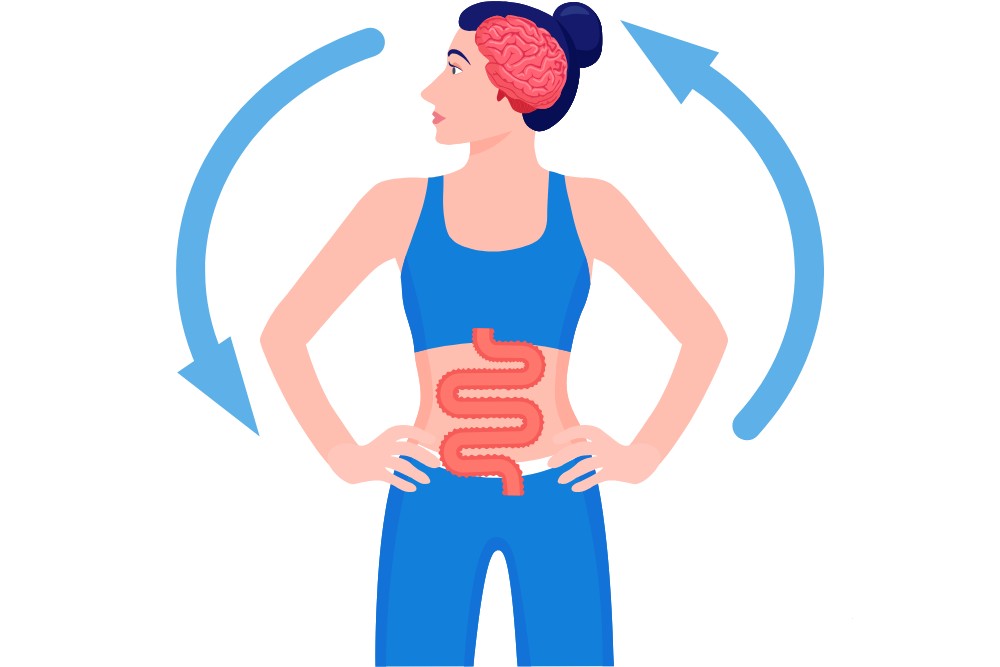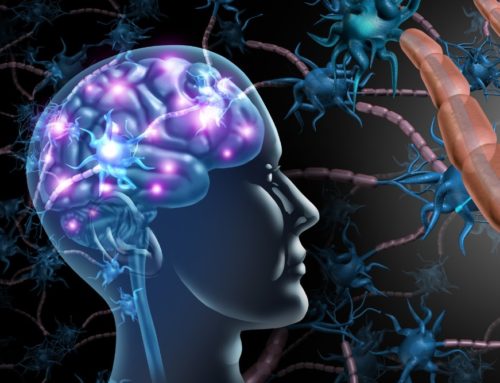The Brain-Gut Axis: How Your Gut Talks to Your Mind
Your gastrointestinal tract handles digestion, but it also interacts with your brain to influence mood, memory, and mental health. This complex communication between the gut and brain ensures your body functions properly and improves mental health.
The gut has a strong connection to the immune system. When harmful bacteria are allowed to grow in the gut’s microbiome, neurological complications may arise. Some disorders, including Alzheimer’s and Parkinson’s disease, have been linked to gut health. Though these issues aren’t always preventable, learning how these systems interact may slow the process, which we’ll discuss below.

The Gut-Brain Connection
The central nervous system includes the brain and spinal cord. These connect to the enteric nervous system (gut) through the autonomic nervous system and hypothalamic pituitary adrenal axis. These other systems work as a two-way communication system, passing messages between the gut and brain.
The brain sends signals to the enteric nervous system to engage digestive and intestinal functions, which isn’t surprising. However, the gut also sends messages back to the central nervous system with unexpected results. As well as influencing immune function, the gut affects behavior, mood, and cognition.
Nerves and signals
The enteric nervous system contains more neurons than the spinal cord, though fewer than the brain. There is also a huge nerve cell system in the gut wall. These neurons and cells coordinate to manage the gut’s functions. These include muscle activity and glandular secretions, including the creation and release of stomach acid, digestive enzymes, and mucus.
The gut microbiome is also vital for these processes, though it also communicates with the brain. This unique ecosystem in your gut contains trillions of microorganisms, including bacteria, viruses, fungi, and parasites. The microbiota affects digestive health and the immune system.
Microbiota also sends signals along the vagus nerve from the gut to the brain. It triggers the production and release of several hormones, influencing mood, emotions, and cognition.
Gut microbes and mental health
According to recent studies, disturbances to the gut microbiome alter its environment. Such disruptions affect the central nervous system and are linked to anxiety, autism, schizophrenia, depression, and other disorders.
The microbiome develops in fetuses and changes after birth as we grow. It’s influenced by various factors, including dietary choices, seasons, health concerns, and environment.
Such alterations lower good bacteria and increase bad bacteria in the gut, resulting in intestinal permeability. The harmful microorganisms leak out of the gut microbiome, travel through the circulatory system, and reach the brain. Doing so alters immune function and could increase the risk of several psychiatric disorders.
Supporting a healthy gut for a healthy mind
The delicate microbiome environment contains helpful microbes, though a few harmful ones always exist. These do minimal damage unless the levels increase in the gut, potentially affecting brain function.
To avoid such disruptions, it’s vital to maintain a healthy gut. Some factors, including genetics and environment, can’t be altered, but your diet can be controlled. Processed, sugary, or fatty foods have no benefit and should be avoided.
Whole grains, vegetables, fatty fish, and fermented dairy products are best to improve gut diversity for better mental health.
Resources:
- PMC, April 2015, The gut-brain axis: interactions between enteric microbiota, central and enteric nervous systems
https://pmc.ncbi.nlm.nih.gov/articles/PMC4367209/ - NCBI, The Enteric Nervous System
https://www.ncbi.nlm.nih.gov/books/NBK11097/ - Cleveland Clinic, Gut Microbiome
https://my.clevelandclinic.org/health/body/25201-gut-microbiome - Stanford, April 8, 2024, More Than a Gut Feeling: How Your Microbiome Affects Your Mood
https://longevity.stanford.edu/lifestyle/2024/04/08/more-than-a-gut-feeling-how-your-microbiome-affects-your-mood/ - PMC, Sept. 15, 2017, Gut microbiota’s effect on mental health: The gut-brain axis
https://pmc.ncbi.nlm.nih.gov/articles/PMC5641835/ - UC Health, May 2, 2025, Improving your gut health improves all aspects of your health, including your mood
https://www.uchealth.org/today/improving-gut-health-improves-all-aspects-of-your-health/
This article contains informational and educational materials and does not replace health or medical advice. For questions or concerns regarding your medical condition or health objectives, speak to a qualified physician or healthcare provider.






Leave A Comment